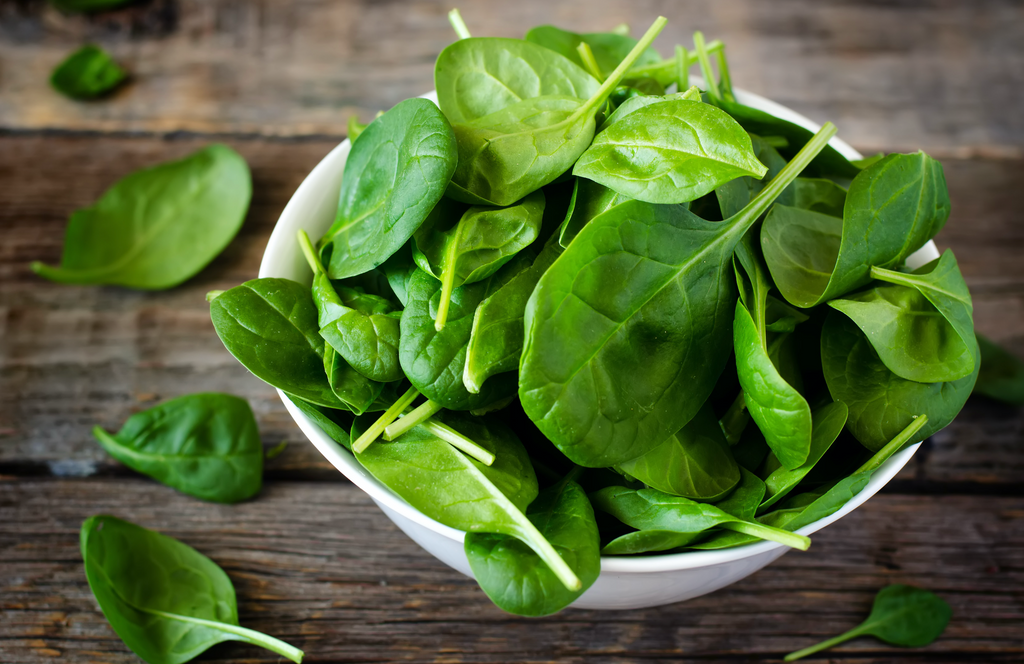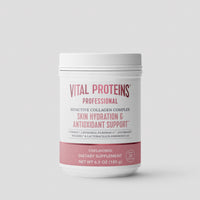Eating more vegetables is a goal for many of us. According to the recently released 2020-2025 U.S. Dietary Guidelines, there is strong scientific evidence that healthy eating patterns are associated with positive health outcomes. Higher consumption of fruits and vegetables are consistently shown to be part of a healthy eating pattern. Yet, the majority of the population is falling short of the daily recommended 2-3 cups of vegetables and 1.5-2 cups of fruit per day.
Of course, any consumption of fruits and vegetables is positive, whether it comes from fresh, frozen, canned or dried produce options. However, some populations may be more interested in specific nutrients in produce, such as vitamin C or vitamin K.
In these cases, it's helpful to know how cooking can increase or decrease the absorption of some of these micronutrients.
Water-Soluble Vitamins
Water-soluble vitamins, like vitamin C and the B-complex vitamins, are most affected by cooking and endure more nutrient losses than other vitamins and minerals. Vitamin C is necessary for the growth, development and repair of all body tissues and is involved in body functions, such as the formation of collagen, absorption of iron, wound healing and immune health. B-vitamins are essential in metabolism and help convert nutrients into energy. They also help to create new blood cells, aid in DNA production and repair and the creation of neurotransmitters.

Vitamin C is the most susceptible to cooking, so if you're looking to obtain the majority of vitamin C in a vegetable, eating it raw is your best bet. This is because the compounds in vitamin C are less stable and begin to break down when subjected to high cooking temperatures. Therefore, to obtain the most vitamin C from foods like broccoli, spinach or peppers, it's best to eat them raw. However, if you do cook them, microwaving or steaming them preserves more of the vitamin C than baking or boiling, due to less evaporation and dry heat.
According to a study published in the journal,Nutrition & Food Science, about 20-30% of the vitamin C in green vegetables is lost during microwaving, which is less than most cooking methods. Microwaving also helps to best retain the antioxidants in mushrooms and garlic.
Bottom Line: Vitamin C and B-complex vitamins are subject to nutrient loss when cooking. To minimize nutrient loss of these water-soluble vitamins, consider microwaving them, steaming them or eating them raw.
Fat-Soluble Vitamins
Fat-soluble vitamins, such as vitamins A, D, E and K, have a different chemical composition than water-soluble vitamins. Therefore, they stay fairly intact when cooked or boiled. Cooking these vegetables in small amounts of oil or fat can also increase nutrient absorption.
While the vitamin C and folate in broccoli may be decreased through cooking, eating broccoli with butter or olive oil will enhance the vitamin K content. To maximize the nutrients in broccoli, aim to eat it raw, microwaved or steamed, and season it with your favorite oil or fat after cooking.
Similarly, spinach also contains vitamin K and fat-soluble carotenoids, which are converted to vitamin A. Due to the mix of both water-soluble and fat-soluble vitamins, cooking spinach will compromise some nutrients regardless, but several will still remain intact. Eating it raw is an excellent option, too.
Carrots are high in vitamins A and K, which promote vision, immune function and growth, and helps with blood clotting and bone development, respectively. Eating raw carrots won't decrease nutrient absorption, but since they contain fat-soluble vitamins, cooking them in oil or pairing them with a fat source, like avocado or hummus, can increase the absorption of vitamins A and K by 6.5 times compared to raw.
The addition of olive or cooking oil is also known to also greatly enhance the absorption of lycopene, the main carotenoid in tomatoes, which is hypothesized to help reduce the risk of heart disease and some cancers.
Bottom Line: Olive oil can be a heart healthy flavor enhancer, as well as aid in the absorption of fat-soluble vitamins, such as vitamins A, D, E and K. Olive oil can also help enhance the absorption of lycopene.

Minerals
Cooking can also decrease the mineral content of some vegetables. Potassium, magnesium, sodium and calcium may all be reduced during cooking to various extents. To minimize these losses, consider eating these vegetables raw, microwaving food or limiting the cooking time, or relying on these nutrients through non-cooked foods.Changing the texture of your favorite vegetables or adding them to sauces can be other fun ways to obtain nutrients while switching things up.
The bottom line is that preparing and eating vegetables in different ways and forms can help promote differing nutrition compositions and bioavailability, and eating a varied diet with different fruits and vegetables can help to provide a necessary variety of micronutrients. Shorter cooking times and reduced exposure to heat will help to better preserve nutrients in cooked foods.













